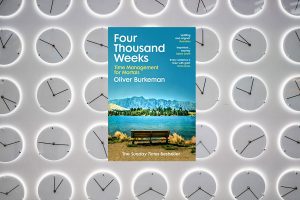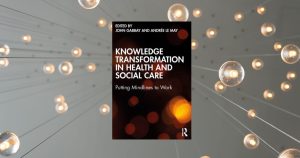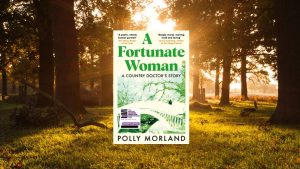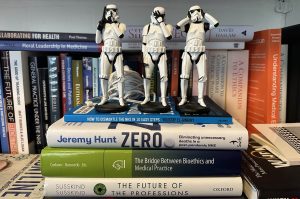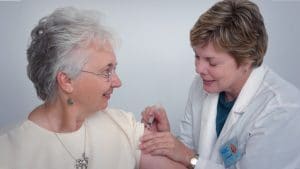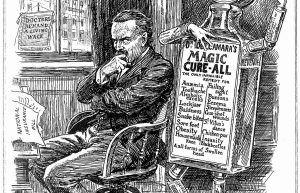Paul was diagnosed with locally advanced cancer in 2019. Paul was under no illusion about his prognosis and from an early point he openly discussed what his future was likely to hold .He set out very clearly what was most important to
The Independent Pregnancy Loss Review, published in July 2023, offers recommendations to improve care for women and their families experiencing pregnancy loss, and includes specific advice for primary care.
So, doctors... are learning to be afraid of uncertainty, ordering ever more tests and prescribing more and more, to try – often in vain – to be sure... But where does that leave Patient Earth?
Variety is a selling point for the profession itself (challenging and interesting) and for the resources needed to do it well (GPs are ‘best’ placed to do many great things but need time and money invested). Andrew Papanikitas introduces this month's Life
"School is integral to the long-term wellbeing and aspirations of children, so it is a cause for significant concern that school absence has increased markedly since the COVID-19 pandemic ... "
All of us in the NHS want to help people, we wouldn’t be here otherwise. But, and I only use diabetes as an example, how much of our work now inadvertently keeps a proportion of our patient’s sick?
In the summer before COVID-19 it the UK, I read three works of fiction (one after another) that changed my perspective on the world and our place in it: The Wall, The World according to Anna, and The Ministry for Future
Richard Armitage argues that, in three well-defined contexts, clinical decision-making should be delegated to AI systems either today or in the very near future.
'Caring for carers is everyone’s business, though general practitioners (and we use our words wisely) are perhaps best placed to identify and support carers -more so than other health professionals.' argue Helen Walker and Clare Gerada
If we want to avoid missing significant diagnoses, and tigers, we cannot examine every symptom or blade of grass exhaustively, but we can cultivate an openness to the sort of cognitive dissonance that points to unrecognised danger. Ben Hoban explains
Introducing a temporary weight loss fix using GLP-1 agonists without consideration of the wider implications and long-term plan is quite frankly, an absurdly short-sighted idea, argues Elizabeth Dapre
GPs allow patients to make harmful choices – thereby affording primacy to autonomy at the expense of beneficence – when that harm accrues only to the individual making such choices. But if your future self is a different person, does that mean
We often consider the malfunctioning of the health service to be someone else’s fault; the government's, the GPs', the receptionist's … but if we reflect on how our expectations, as a society, have changed over time, perhaps we might find ourselves complicit.
'When reading the spread of articles in this issue it struck me that we need diversity to be better clinicians, colleagues, and citizens.' Andrew Papanikitas reflects this month's Life and Times articles, discussing gender, diversity, narrative and queer bioethics.
In general practice we can discuss end of life and treatment escalations decisions with patients before they become very unwell, and this is where the ReSPECT process could potentially give a space for a meaningful patient-centred discussion about preferences at the end
In an attempt to improve physical health outcomes in this group, patients registered at their GP practice as having a severe metal illness are eligible to undergo an annual health check in a primary care setting. Richard Armitage discusses recent progress.
The recent release of “Queen Charlotte”, the Bridgerton spin-off series on Netflix, has reignited interest in the illness of King George III. Whilst the series is described as ‘fiction inspired by fact,’ the story of King George leads into the wider
Professor Joanne Reeve applies a new book on Mindlines and finds hope for UK primary healthcare
So what we need is the invention of a ‘new category’ of General Practitioner. David Mummery sets out his manifesto for the future general practitioner. Discussion welcome!
The wolves in the forest that frighten human beings are now at last being accurately named: poverty, homelessness, hunger, unemployment, domestic abuse, adverse childhood experiences. Humans like sheep have a basic need to feel safe. They can’t function well until that need
Hannah Barnes has written a detailed account of what happened at the Tavistock and Portman NHS Foundation Trust’s Gender Identity Development Service (GIDS). Margaret McCartney reflects on the risk that healthcare organisations run when worries from staff translate into organisational defensiveness.
A recent BBC Panorama ‘expose’ of private ADHD clinics suggests that some online providers are over-diagnosing ADHD following inadequate clinical assessments. Patients are increasingly turning to private providers both out of pocket and through right-to--choose arrangements, and ultimately, GPs may be asked
"I predict that, by June 2025, all GPs will be using some form of LLM-powered co-pilot in their day-to-day practice ... Used (and regulated) correctly, these tools will enhance patient care, improve GP working conditions, and relieve pressures on general practice in
"Morale in general practice has never been lower, and I can say that having been a GP for 37 years. In all this adversity and negative press, the care has carried on regardless, even allowing pockets of brilliance to shine through. We
Primary care systems can clearly be described as networks of people and things, ideas, processes, relationships and technologies. It is patently clear that we have a duty open the black boxes of our primary care systems, lest ignorance of how they work
What are the personal and human factors that most motivate and anchor our best healthcare? What best nourishes and sustains both patients and healthcarers to endure together life’s most difficult challenges? This book answers such questions with luminous and engaging clarity.
General practice can play a major role in assisting in raising awareness and supporting primary prevention, early identificationand intervention of domestic abuse, argues Vasumathy Sivarajasingam
This year marks the 75th anniversary of the foundation of the NHS, and it is timely to consider the post-1948 story of general practice, and what we can learn from the past to make the future more propitious than it appears. Edin
Fourteen years ago, I watched the drama-documentary-animation hybrid film: The Age of Stupid. This is set in a climate-ravaged 2055, and features a last-surviving human who has been entrusted to archive human records. He is reflecting on news footage demonstrating the devastation
Vasumathy Sivarajasingam showcases how GP practices in Ealing (NW London) worked towards ‘greener practice’ and sustainable healthcare.
Charlie Massey, Chief Executive of the GMC, tells us ‘there is no ready-made batch of GPs waiting to be plucked off the shelf to ease the pressures on the workforce...’ In the bookcase of doctors coming to the rescue of general practice,
Richard Armitage uses ChatGPT to interview an AI simulation of the 'Father of Western Medicine.'
In an era where difficulties in GP recruitment and retention are having significant impacts on the workforce, will knowing the ‘value’ of a GP give us any clues as to the projected cost in terms of loss to the system if that
Slight changes in phraseology can dramatically alter the central meaning of a vitally important principle. By “consenting the patient” instead of “seeking meaningful consent,” the right of our patients to be involved in choices about their treatment and care... is exchanged with
Andrew Papanikitas introduces the articles in this Month's Life and Times, and reflects on the meaning of 'Crisis' as it applies to global general practice
Rabia Aftab advocates that exercising these three Es (Expectations, explanation and empathy) in our consultations offers a path to better satisfaction for GP and patient alike.
"More validation should be given to the therapeutic benefits of listening closely and bearing witness to somebody’s suffering." – Rupal Shah and colleagues continue their hermeneutic series, focusing on the importance of relational care in general practice ...
The effects of the earthquakes on child health in Türkiye are substantial, multifaceted and, without urgent intervention, deeply enduring throughout the life course. Richard Armitage reports from the scene.
The independent contractor model for general practice is one of the under-rated aspects of the NHS that rarely hits the headlines. It is particularly important for our professional autonomy and business flexibility.
Teams are the talk of the town in practice transformation circles. They are extolled as the solution for many of our deficiencies– from chronic staffing shortfalls to employee burnout. This extended essay by David Loxterkamp gives a perspective from American primary care
My assumption was of a middle class journalist parachuting in to a deprived area and reporting through his own middle class lens. How wrong I was – this is actually the extraordinarily reflective work of a man who grew up with













